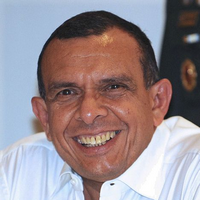Many Hondurans as well as outside observers of the country's political crisis breathed a sigh of relief when Porfirio Lobo Sosa was sworn in as president on Jan. 27. Lobo's inauguration took place nearly seven months to the day after the military, backed by influential opposition leaders, forced former President Manuel Zelaya to leave the country. That marked the beginning of a lengthy power struggle between Zelaya and interim President Roberto Michelletti that thrust the small Central American nation into the international spotlight.
Lobo's inauguration definitively answers the question of who will be president of Honduras in 2010, and closes some lingering chapters from the crisis. Under a deal brokered with the incoming government, all military officials involved in Zelaya's removal were exonerated from any resulting charges that are still pending. In turn, Zelaya, who had been staying in the Brazilian Embassy in Tegucigalpa since September under threat of arrest, was granted safe passage to the Dominican Republic, along with his immediate family.
Nevertheless, a significant amount of work lays ahead for Lobo's government, which is under pressure from many governments in the region -- as well as the Organization of American States -- to carry out a full-scale investigation into the events of last year, in order to make sure that a repeat scenario is avoided. The new Honduran government is now delicately engaging regional governments, while forging a new path that it hopes will lead the nation away from the debacle that characterized the nation's politics in the latter half of 2009. Lobo has already met with Colombian President Álvaro Uribe to discuss security issues, and he met with high-ranking members of the U.S. State Department days after his inauguration.

